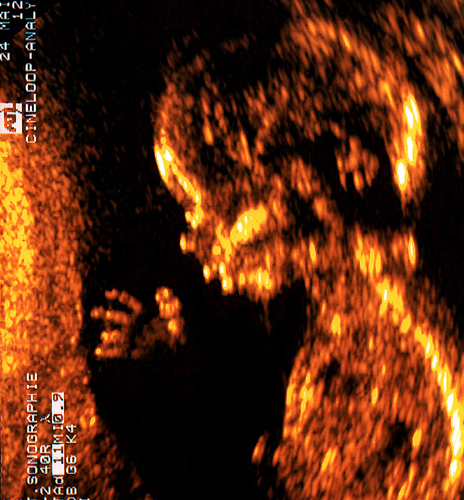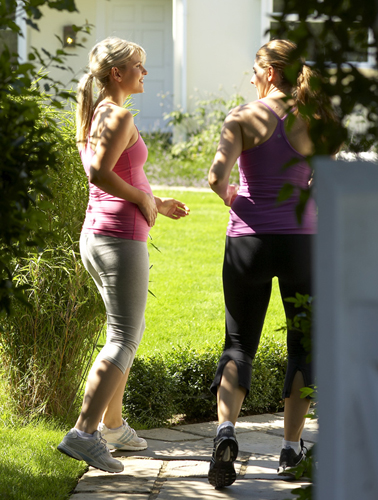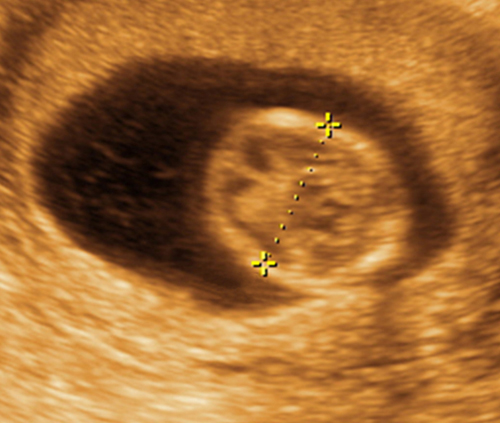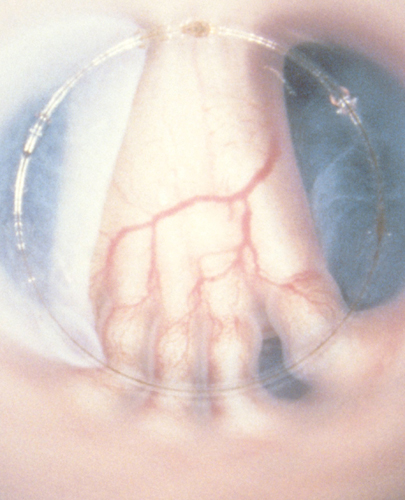Your 14th Week
Your baby isn’t big enough
to give you an obvious pregnancy belly, but you’ll definitely notice
your waistline become thicker. At this stage of pregnancy, many women
feel re-energized and have a strong sense of well-being. Healthy eating
is very important, so be clued in about the best food choices. In
particular, your body needs plenty of protein; and your baby needs it,
too, to sustain her rapid growth.
NOTE
There are subtle changes happening to your shape that only you will notice
You are 13 Weeks and 1 Day 188 days to go…
Relief, excitement, apprehension… it’s normal to feel all this and more at this stage of your pregnancy.
Your baby today
It’s easy to see where your baby’s bones are on an ultrasound as
they show up as brighter areas. Other features may be harder to see. If
you have a scan and are unsure what you are looking at, ask your doctor
to interpret it for you.

While you’re undoubtedly feeling better physically, and probably have lots more energy, you may still be up and down emotionally. This is completely normal.
This stage of
pregnancy can be a very emotional time: reaching the second trimester is
a pregnancy milestone and coincides with seeing your baby on the scan .
You know that, with the chances of miscarrying now being so minimal,
you’re really going to have a baby. However, like many pregnant women,
you may find that the feeling of relief at reaching this stage is
followed by occasional anxieties.
One good outlet for all
this emotional energy is exercising, which you may find easier now that
you’re over the first trimester fatigue. Exercise releases endorphins,
the feel-good hormones, and so can improve your emotional as well as
physical well-being, but always exercise safely (see Listening to your body).
Listening to your body
Check with your doctor
whether there’s any reason why you shouldn’t be exercising; there are
certain pregnancy conditions, such as placenta previa and the risk of premature labor, that may preclude you from exercising.
When exercising during
pregnancy, always use your common sense and look out for symptoms that
may indicate you are exercising too hard. Aerobic exercise is often
tracked by measuring the heart rate, but this is difficult during
pregnancy since there is a natural increase in your heart rate, even at
rest. So the most effective way to keep your exercise at a safe level is
the talk test: you should be able to carry on a conversation while
exercising. This will indicate that you are not exercising to exhaustion
and potentially restricting the oxygen flow to your baby.
There are other symptoms that indicate you’re exercising too hard or should not be exercising at all:
Vaginal bleeding
Dizziness and headaches
Chest pain
Extreme and sudden muscle weakness
Calf pain and leg swelling
Leakage of amniotic fluid.
If you suffer from any of the above symptoms, even momentarily, stop exercising and seek medical advice.
Exercising may reduce the time you are in labor.
Research has shown that
women who exercise at a moderate to high intensity can cut their time
in labor by up to three hours, and they tend to have less complicated
deliveries than those who don’t exercise.
Rather than taking a gentle stroll, try walking at a brisk pace, but make sure you can still talk. This will ensure you’re exercising at a moderate aerobic level.

You are 13 Weeks and 2 Days 187 days to go…
Even at this early stage of development, your baby has started to urinate, although in very small quantities.
Your baby today
This scan shows a cross section of your baby’s brain, with the
two hemispheres clearly seen. From this point on, your baby’s brain
measurement from one side to the other, taken just above the ear, is
used as a reliable indicator of her growth and development.

Your baby’s bladder
now fills and empties every 30 minutes; she swallows the amniotic
fluid, filters it through her kidneys, and then passes it as urine. The
bladder volume is tiny at this stage, and even by 32 weeks it will only
be 10 ml, reaching 40 ml by 40 weeks. Your baby produces very dilute
urine, having only a limited capacity to reabsorb water in the kidney to
concentrate the urine. However, the placenta performs most of the
kidney functions until birth.
Your baby’s blood system
can now make and break down blood clots. The placenta has been able to
form clots for some time, reducing the risk of bleeding. A small number
of white blood cells are now being produced by your baby but she is
still relying on yours to fight infection. Her red blood cells contain
hemoglobin that transfers oxygen to all the cells of the body. Before
birth she has several forms of hemoglobin that differ from yours. These
are more stable at a lower acidity and bind more easily to oxygen. This
allows your baby’s body to extract the oxygen in your hemoglobin for her
own use.
The toes are now fully formed and separated, and their individual bones can be clearly discerned on an ultrasound.

… Doctor
| Q: |
I’m expecting triplets. How will my prenatal care differ?
|
| A: |
All the usual risks of pregnancy are increased for women
having more than one baby. This is partly because hormone levels are
higher when there is more than one baby, and, in your case, it will be
hard work for your body to carry and nourish three fetuses.
You can expect to be
referred to an obstetrician, who will plan your prenatal care with you.
You’ll have more frequent checkups and scans to check the health and
progress of your babies. Although many of the risks are outside your
control, if you go to all your appointments and take care of your
health, it is likely that you will have three healthy babies.
With triplets, you will probably need to give birth by cesarean section. The average pregnancy length for triplets is 34 weeks.
For more
information about multiple pregnancy and details of local support
groups, visit nomotc.org, the National Organization of Mothers of Twins
Clubs’ website.
|
Amniocentesis
This involves testing the amniotic fluid and is normally done at 16–18 weeks (see Diagnostic Tests) It may be offered:
When there’s a family or pregnancy history of a genetic problem.
To older women who are more at risk of having a baby with a chromosomal abnormality.
When a screening test has shown there is a high risk of a chromosomal abnormality.